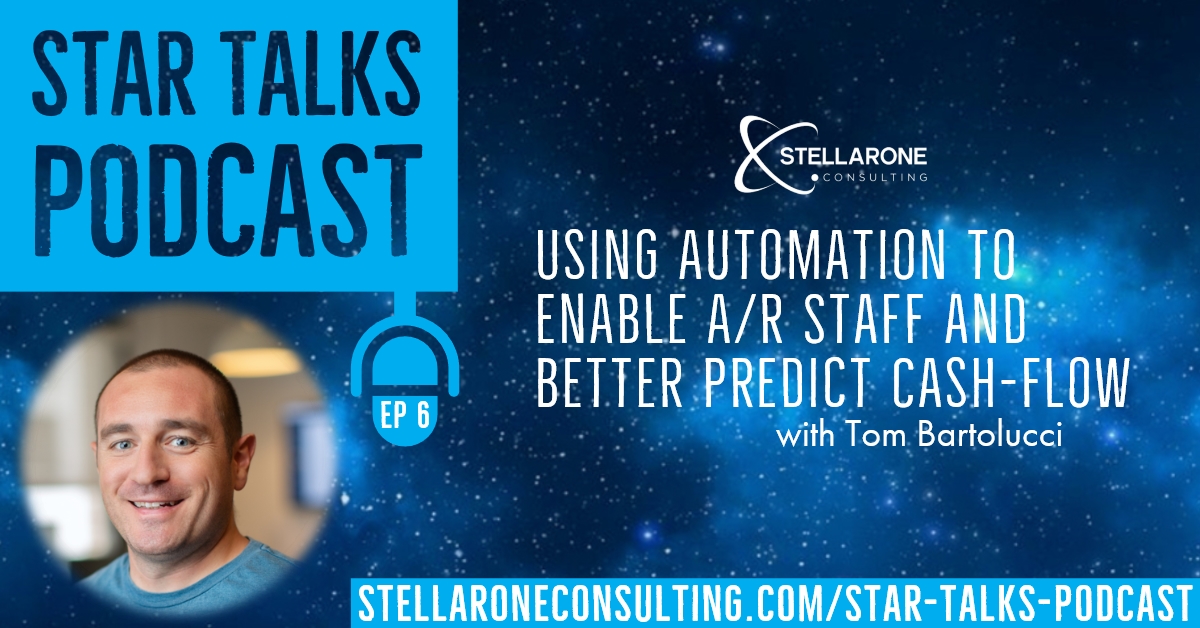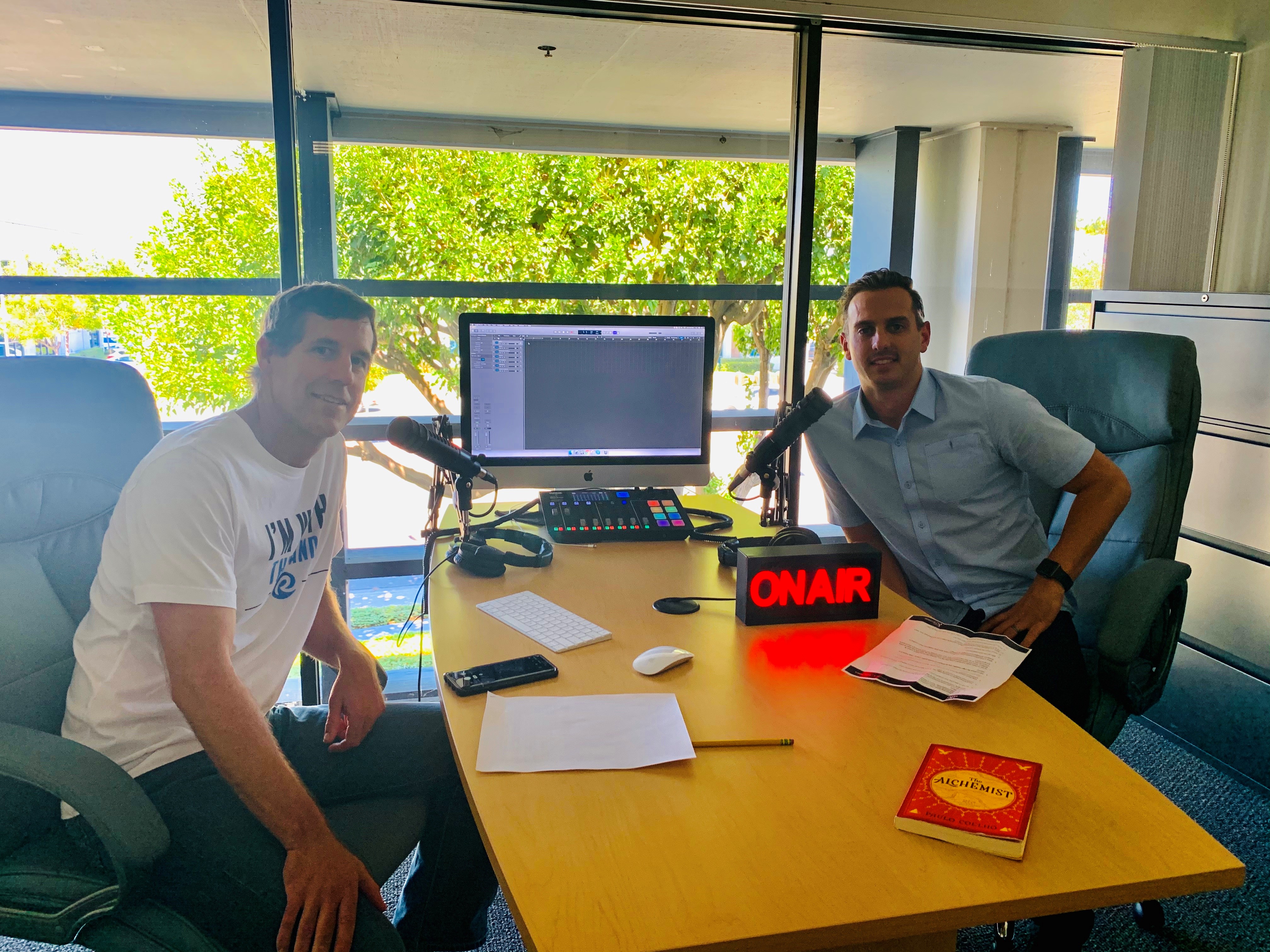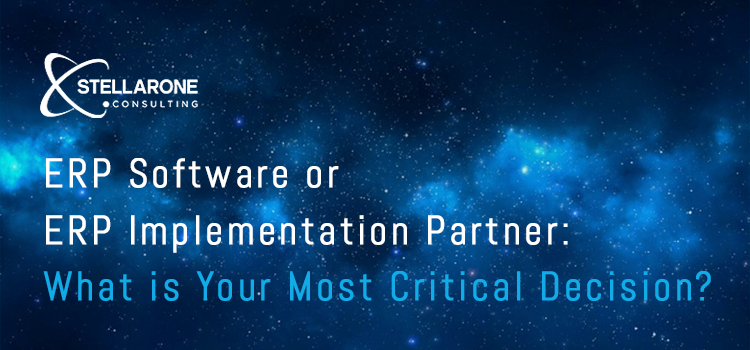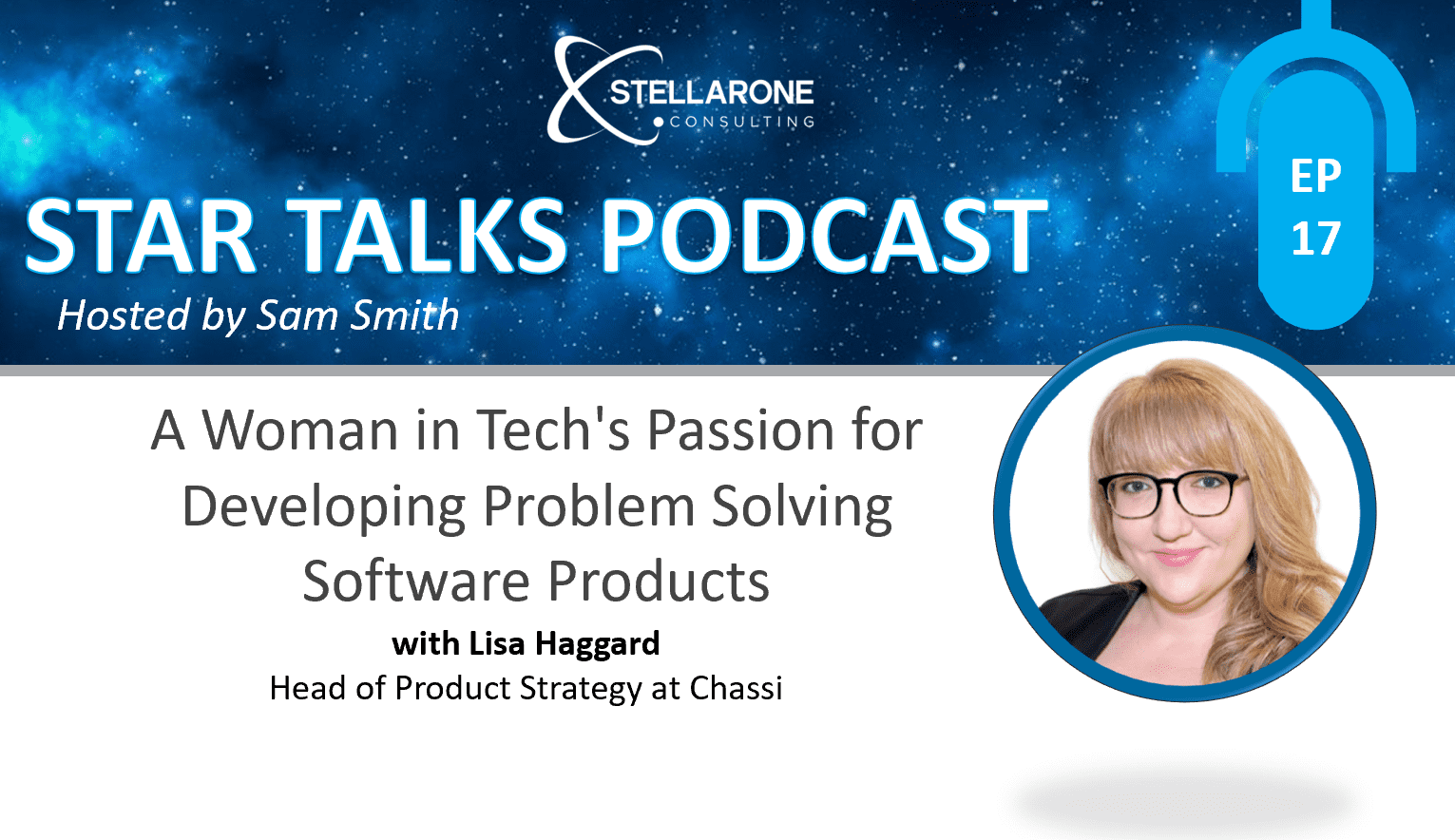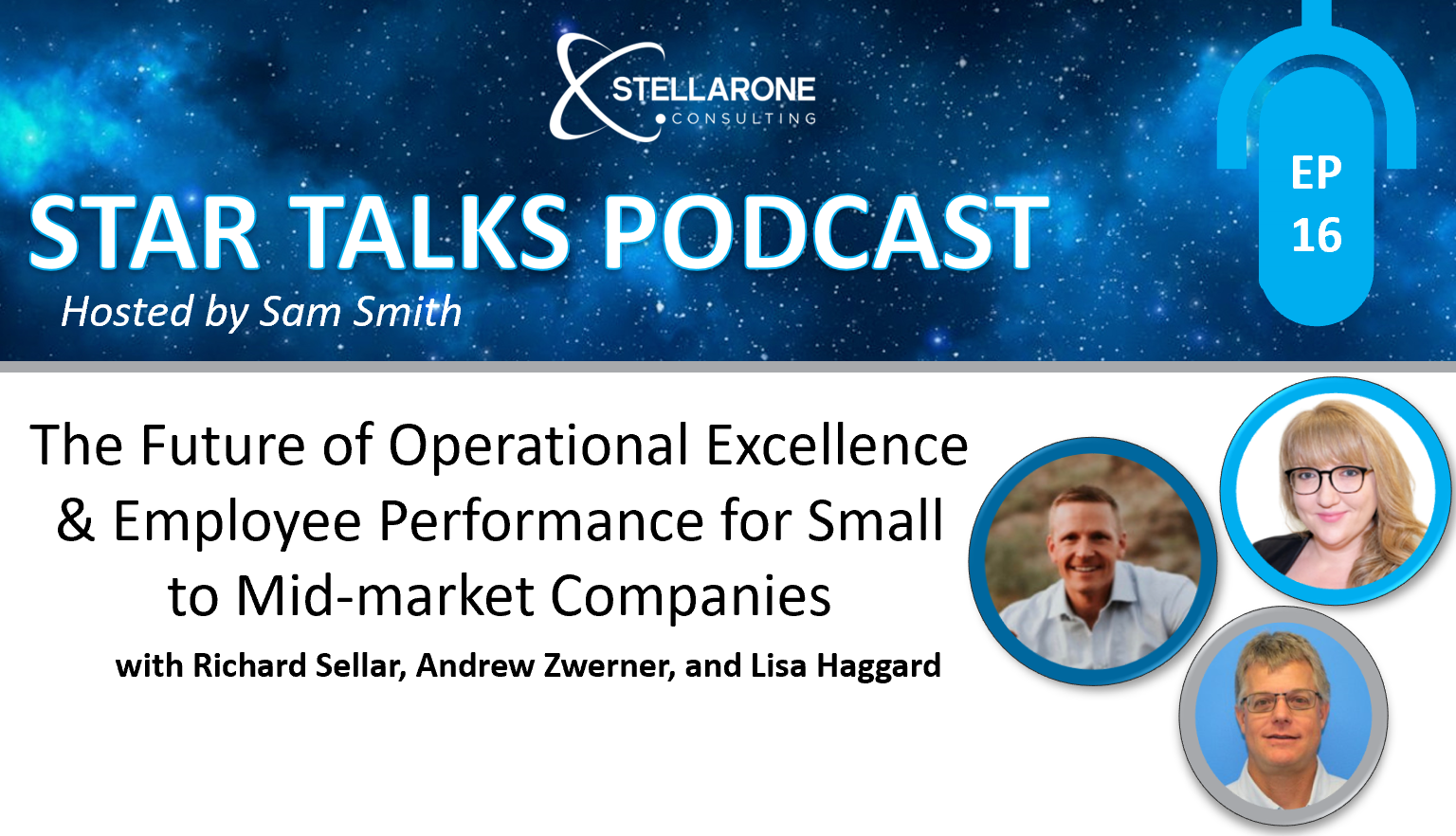Star Talks: Episode 7 with Reza Karegaran: Star Talks is the podcast of small conversations that inspire you to do big things and on this episode Reza Karegaran, the former CIO at AutoAnything.com, talks about the challenges of managing an eCommerce catalog with over 50 million SKUs, how he was able to cultivate a purpose-driven, principled culture in a demanding software development environment, and how the Agile development methodology can be applied to deliver valuable, high-quality products more quickly and more efficiently.
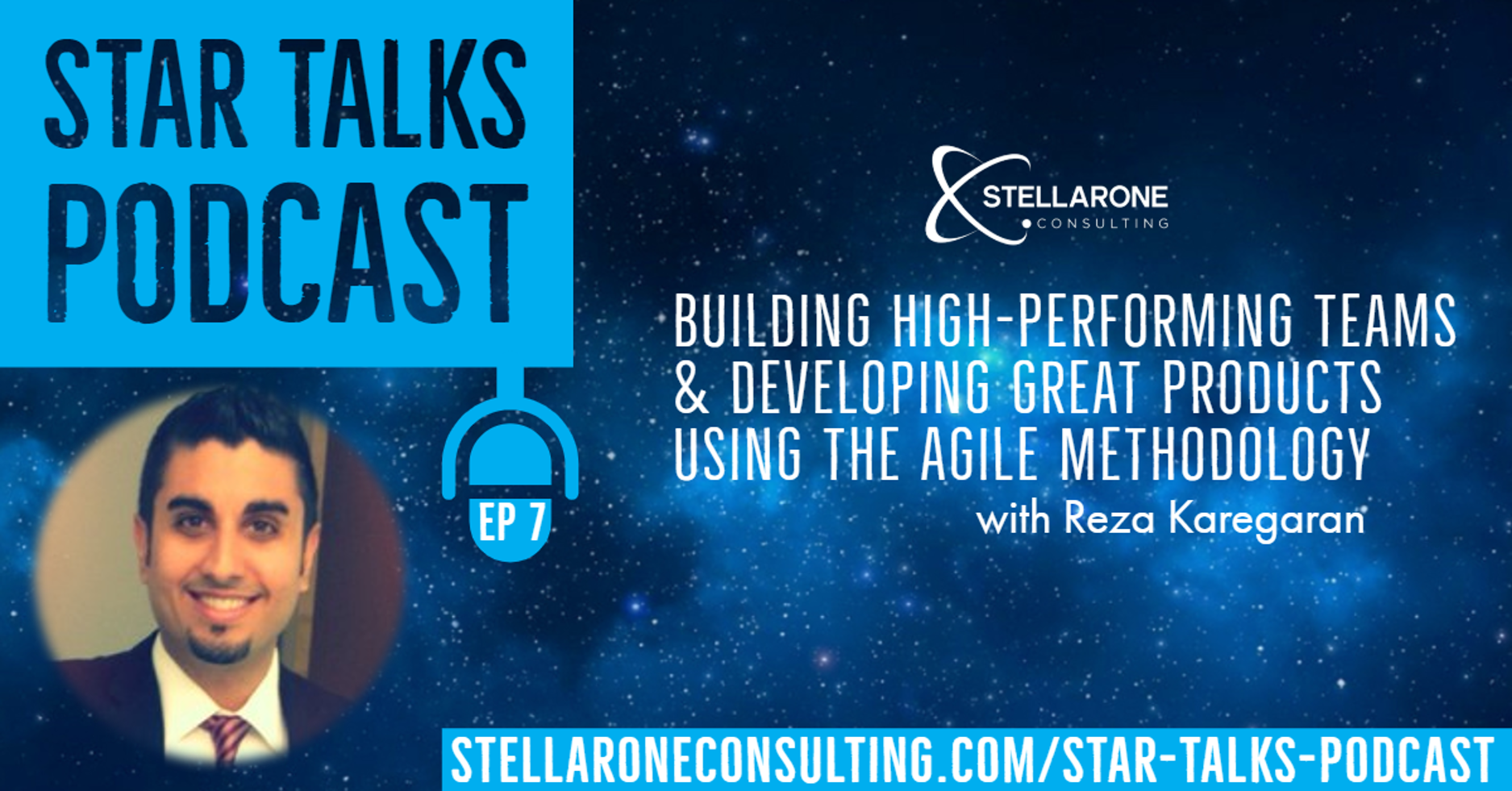
In this episode of Star Talks, Reza Karegaran sits down with us to talk about:
- The importance for him to clearly define the people who are served, and the problems that are solved, in order to find real purpose in a software product development environment
- How he enabled departments across the entire organization to make better decisions more quickly, by giving them access to data and equipping them with tools that empowered their own data exploration
- The parallels between the challenges at AutoAnything.com and the one's that "Parts Unlimited" faced in the best-selling DevOps book: The Phoenix Project
Listen, Subscribe and, if you like the show, give us a 5-Star Rating Here: Apple Podcasts | Spotify | Google Play
You can also listen to the episode with Reza here:
Ways to connect with Reza and the Stellar One Team:
Reza Karegaran - LinkedIn
See all Episodes here - Star Talks Podcast
Stellar One Consulting Social Media - Facebook | LinkedIn | Twitter
Sam Smith (Episode Host): LinkedIn
Here's the episode transcript:
Well, thanks for joining us Reza.
Reza: (01:17)
Yeah. Thanks for having me, Sam. I'm excited to, uh, this is going to be my first podcast.
Well, it's a solid show to make your debut. I've been really looking forward to talking with you and learning more about your background. You've got a very interesting track record and love to hear about what you're working on. But let's start off, where are you from and what was it like growing up?
Reza: (01:38)
So I was born and raised in San Diego. Uh, I've been here most of my life. Um, uh, my parents are originally from Iran. Um, they moved here, uh, you know, years and years ago. Um, so yeah, I think, uh, born in San Diego, spent a little bit of time in, uh, Irvine where I went to school. Um, and then eventually started working here in San Diego, moved up to San Francisco for a couple of years and then found my way back to San Diego, uh, several years ago.
So when did you first see show signs of wanting to be a developer? Where did this come from and what was the first time that you realized that you were passionate about software development?
Reza: (02:16)
You know, I've always been into computers for as long as I can remember, like begging my parents for a computer when I was eight or nine years old. Um, I think at that point I didn't really know what, you know, what they were capable of, but somewhere around middle school I was taking a programming course and that's when I realized that that was it. It was like before that point, um, I was probably leaning towards becoming, going into medicine or, or becoming, I think a dentist was something that I'd been talking about at that young, young age. And then as soon as I took that first course, I'm like, Nope, this is it. Like I figured it out. I found, I found out what I love doing, uh, or what I think I'm going to love doing. And from that point forward it was like nothing else. So I got, I was pretty lucky to know what I wanted to do at a very young age.
So one of the things that really strikes me most about you when I was doing research about you and your background and when I look at what other people say about you, you, you seem like a very purpose driven, principled person. Is that the right read? And if it is, where does that come from?
Reza: (03:18)
Yeah, that's a great question. I think, yes, I am a purpose driven, you know, principles person. I think where does it start? Um, you know, a while back, early in my career I started to realize that it was really important for me, uh, even as an individual contributor and then later moving into management and like kind of running teams and building teams. It was really important to me to connect the dots between the work that I was doing every day and the work that our teams were doing every day and how that supported kind of the greater vision, the greater mission, the company's strategic object objectives. And really how what we were doing is, was making our customer's lives better, right? How are we creating value and how could we connect those dots between the day to day and kind of the long-term objectives? And I think it's an important aspect, um, of motivating people to do good work.
Reza: (04:07)
Right? I think, um, in context of like building, you know, you really high performing teams, I think it's important that they have, you know, clear direction that they have, that they have purpose and they have autonomy, uh, to, you know, really solve those interesting problems but really understand, um, how the work that they're doing, uh, is going to support those, those long-term objectives. So, so yeah, early on I thought, you know, I've, I've, I've started to put a real emphasis on it. Um, cause I struggled myself. You know, I, I realized that there were times, this is early in my career where, you know, I felt like things were just being handed down, handed down and we're working through things and it's like, okay, well what, what direction is this? Is this ship going? Um, and how has the work that we're doing today supporting, you know, our end game? And, you know, I just, I started to realize how important it was for not only for me to connect those dots, but, um, for me to kind of bound and scope and create context for the people that I was working with so that they were motivated and that they had sort of purpose and they could latch on to those challenges on their own too, instead of just me demanding or forcing or telling them, you know, I really wanted them to be a part of that. And I think the only way to do that is, is to start, um, you know, with those kind of guiding principles.
God, it's such a great point, Rosa having the end goal in focus, not just the, you know, here today, but how does what we're doing right now support our ultimate vision and where we're ultimately trying to go?
Reza: (05:32)
Yeah, no, absolutely. I think it's like, it's probably one of the most important aspects, um, of, of just running, running a good high performing team. It really running any team, uh, is that, is that the team, everybody on the team really needs to understand and, and understand what their, what their purpose is, what their mission is, and be able to connect those dots for themselves. You know, and I think just spending time and doing that and, and just putting thoughts down on paper. I think that's, that's another thing that isn't happening as, as, as often as, uh, as I would like is just before we start working on something. Let's, let's talk about it. Let's figure it out. Let's all, let's all, um, let's all talk through and, and, and make sure that we have a common understanding of that end state and where we're heading and then we can kind of unpack and, and figure out what steps we need to take to get there.
So you have many years of experience implementing, developing, designing, testing, leading software teams. Out of all of that stuff that you've done, what do you enjoy the most?
Reza: (06:34)
Oh wow. That's a really good question. I think, um, it's, it's always, it's always a little bit challenging in the sense that, you know, I started as an engineer, as an individual contributor and then quickly, um, probably too quickly to be honest, moved into a more of a leadership role. Um, you know, I think I have a natural leadership and I really, really enjoy doing that. But I also really love the engineering. So early in my career there was sort of this struggle or this balancing act cause you know, I, I definitely, you know, enjoyed doing the leadership work, um, and, and, and building those skills. Um, but I also didn't want to step too far away from the technology. Um, so understanding how to balance those two things, um, was, was really challenging. But I think as soon as I understood how I would maintain, um, where I think I can add most my, like the greatest value is in more of a leadership role in a leadership capacity.
Reza: (07:30)
I think I have that interesting sort of mix where I'm still really, really technical. Um, and I think that's an important aspect of a technology leader, a strong technology leaders to maintain those technical competencies. As an example, like over the last couple of weeks I've been working on a couple of like, um, just web apps using view and react. So I'm trying to like compare the two and actually just build a couple of, uh, sample apps that are just on the internet following some tutorials and things. So just to keep my skills up to date because I think, you know, it's you, you, I think you lose credibility as a technology leader if you don't understand some of those details and you can't understand all of them. And there's just way too much to be an expert in everything. But I think there's a few areas where I know that I'm interested in and that have overlap between, um, you know, what I'm interested in doing from a career perspective.
Reza: (08:22)
And so I spend time on making sure that I have those skills. But yeah, I think from my perspective it's like I love being a technology leader. I think there's nothing better. I think the world is accelerating at such a fast clip that's like so much is changing so frequently. It's like, how do we, how do we make sense of this world? How do we leverage all these new patterns and practices and technologies and how do we create, you know, awesome new, um, products, technology services, whatever it might be. It's like there's the opportunities are endless. Um, so I think there's a, there's a balance there where as a leader, I, uh, really emphasize, uh, keeping my technical competencies at a certain level.
So you spent a lot of time at Auto Anything.com you were the former CIO there, also the director of software engineering. What is Auto Anything?
Reza: (10:26)
Yeah, I don't want anything. Is an eCommerce company a B2C? So consumer, e-comm, retail company, um, they sell uh, specialty automotive accessories and performance parts. So you think it's just the standard, you know, retail eCommerce site. But there's an interesting complication there in selling, um, selling stuff for vehicles. So the complication is that there's most of the things that we, that automated thing sells are custom fit. And so I'll give you, I'll give you like a quick example. In apparel for instance, you're talking about selling a tee shirt that might come in three sizes or four sizes and three or four colors. So you've got, you know, 12 or 12 or 15 or 16 skews for that one product in the automotive world, a car cover that might come in six different colors and five different materials can fit 100,000 different vehicles. So each one of those vehicles has a different sort of skew. Uh, and, and each one of those, um, each one of those skews that might have a different cost and price. And so there's all these interesting complications that come with running a retail site supporting custom fit product for vehicles specifically. So it was just a really interesting space. But, you know, that's Auto Anything in a nutshell, selling specialty automotive accessories and performance parts to, uh, the customers.
So you talked about the, you know, the complexity and the challenges that just come with managing hundreds of thousands of skews, uh, with all the different product that you had at auto, anything. So what would you say is like one of the main challenges or complications that you faced with that?
Reza: (12:02)
Yeah, no, great question. I think the greatest challenge was just the vast catalog that we maintained. Um, you know, our catalog, I think at its peak or, you know, for, I dunno a, was probably around, um, uh, near a million skews. But then when you combine the skews with the applications to different vehicles, you were in like the 40, 50 million, uh, variations. So just imagine each one of those lines has a specific, um, uh, supplier has a specific price and a cost. So updating and managing that catalog data was a huge, huge challenge for, for many, many years that auto, anything. So, um, early on we focused on building, um, a lot of kind of tools on our own, uh, in order to help support a catalog of that size. So, you know, you look at, this is when we started in, you know, in the mid two thousands, there weren't many off the shelf solutions that, um, would serve us easily.
Reza: (13:03)
We'd have to, you know, customize them to no end, which is kind of ends up kind of being a nightmare for 'em in, from a support perspective. So we ended up building a lot of the technology ourselves. So the catalog, the catalog was a big part. We had a team of like 40. At our peak, we had a team of like 40 people, um, that were using the tools that our engineering teams have built, uh, in order to support, to support and keep that catalog up to date. You're talking about, you know, uh, millions of skews that are being updated, uh, every year or two. So like, or, or new applications are being added for those skews every year. So like every year when, you know, tens of thousands of new car model years are coming out, well, we have to go back into the catalog, uh, and make sure we update all of those skews, uh, and, and check with the suppliers and make sure that they're, you know, moving this product forward to the next model year and see if there's any changes and see if the prices are the same. So I think just managing the data at that scale, uh, was a challenge. But you know, we built a ton of tools in order to make that easier for the company.
That's absolutely mind boggling. So you talk about building tools to help you manage this data properly. What methodology do you subscribe to when you talk about deploying, developing new tools, new capabilities?
Reza: (14:14)
Oh, great question. Um, you know, agile, Auto Anything specifically was, this is again, mid two thousands. I think when we really latched on to, um, to scrum, this is like, you know, probably just a few years after, um, the agile manifesto was written. Um, so we, we were really early adopters on scrum and, uh, and then over the years it's sort of evolved. So, so to answer your question concretely, like how do we deliver, I'm, I'm of the philosophy that, you know, you have to deliver iteratively. Like there is no, and this is, this is over 10-12 years of trial and error or trial and error that, you know, you want to break these down and work in such a way that allows you to test quickly and learn and then iterate and then, and then continue to kind of build. So, you know, we very much, uh, early on latched on to agile and scrum specifically.
Reza: (15:05)
And then over the years we sort of evolved and I think now, um, you know, we don't subscribe to scrum, uh, you know, uh, uh, in a dogmatic way where it's two weeks sprints and all of the ceremonies and this, that, and the other. I think it really depends on the maturity of the team, um, but, uh, to, to figure out, you know, what operating model works best for what team, um, but we're very much, you know, of the agile mindset and that's, that's where I'm at too. It's like, I, I don't even at this point, I think, um, you know, anytime we're building software and really any capacity, uh, it, it, it rarely makes sense to do sort of a big bang deployment where you're working heads down for, you know, weeks or months on end, uh, without, you know, and then, and then coming out at the end and saying, Hey, we're going to launch this new product. It's like, no, that doesn't make sense. Um, it makes sense in some, in some situations, I won't say it's always the case, but, uh, I think more often than not, in my experience it's been, Hey, let's break this problem down. Let's unpack it and let's see what, what we want to learn, uh, or what we don't know first and let's see how we fill those gaps. Um, while we're developing and evolving this product over time. So I think that evolutionary architecture is a, is a big part of my philosophy around building software.
So one of the books that I noticed you listed on your LinkedIn profile is the Phoenix project. And you know, the fictional company in Phoenix project parts unlimited is actually pretty similar to auto anything or maybe what parts unlimited was aspiring to do what the Phoenix project was, be like auto, anything.com. You've seen the, you've, you've read the book. What were some of the parallels that you were able to notice between Auto Anything and parts unlimited and how were you able to apply some of the things that you learned there?
Reza: (16:55)
Oh, that's a great question, man. Phoenix Project is such a great book. Um, so I think, you know, and it was, it is funny that the, the, the, the story is built around this, you know, fictional parts unlimited company. Um, cause it was easy for me to like recommend the book to everyone else on my team that I needed them to read it. It's like, Hey look, there's even the, the examples in the book, um, kind of makes sense. So, um, let's see. So when when I read that book, it was around the time that sort of dev ops, um, that was turning into a buzzword and starting starting to make inroads into sort of engineering and software development. And you know, at that time, uh, we'd been struggling. We've been struggling with, um, with, with, um, kind of getting out of the hole, right, that we have a lot of legacy systems, there's a lot of technical debt.
Reza: (17:46)
Um, there are new systems and we are evolving, but it's almost like you're going through these growing pains where, um, there's just this, there's too much in the weeds. There's too much. Um, there's too much, uh, operational support that the teams are being burdened with. Uh, and, and I think that that was a, that was a key part from that book where they talked about, um, you know, sort of really, uh, we're really making sure that everything that the teams were working on and that they were burdened with was public and transparent. So I think, uh, if I'm remembering correctly, I think part of the book described them starting to, um, you know, put everything on a board, you know, everything that the teams were working on, on a board, you know, including the tickets that were coming in, the support requests, the incidents that they were, uh, that were being, uh, raised and how they were being managed. So I think it really lent some good, um, practices that we could implement that would make the lives of the engineers better and ultimately, you know, move us toward, um, um, move us toward becoming a more efficient team. Like, I mean, that's, yeah. So that's kinda in a nutshell how it impacted me in our teams.
A lot of our audience members are leaders at e-commerce. You know, omnichannel e-commerce companies, wholesale distribution companies, what's some advice that you would give them on how to take and blend all of the data that they have and to turn it into visualizations that can enable actionable changes or actionable insights? What would you, what would you say to them and how they can do this effectively?
Reza: (19:26)
Um, about two years ago at auto, anything, so, so we, we sort of struggled with this too. I think I, and I think everybody is, um, all of a sudden, you know, data's the new, um, you know, the new, you know, hot pot hotness, uh, and is so valuable and making, and there's so much of it and making sense of this, uh, of all of this data is, is challenging, right? And it's like you need new tools, you need new systems, and you need new skills really to be able to support and, uh, analyze that data. So at auto, anything what we did a few years ago, or actually like over the years, we'd built, you know, several different reporting systems, uh, or we leverage different reporting suites, uh, to manage our operational reports. And over time it sort of became really a, it was not brittle, but, um, it was that, that we needed to give more power to our end users and we needed to give more data.
Reza: (20:18)
And when I meant, when I'm saying end users, I mean our, our stakeholders and partners in the business, we need to give them direct access to the data. And I felt like we weren't doing that. There was, there was these canned reports that we built and you know, there was a process through by which we'd go in, like review, look at new submissions for report requests, and then kind of design those reports and then build them sort of the old school methodology, right? Hey, here are the requirements. Oh, we'll deploy a new report for you. Boom. Now you have an operational, now you have a report that can support this kind of operational aspect of what you're doing. Um, and I think that's like the 1.0, where 2.0 is like, how do we get this data, all of the data that we have, um, in, in sort of, um, in a warehouse, in the data warehouse or data Lake, uh, that we can then give our end users direct access to, uh, and layer in some tools, uh, so that they can support, you know, visualization.
Reza: (21:11)
And then, and then even even beyond that, uh, how can we start leveraging machine learning and AI? So a couple of years ago, uh, we started this push to bring everything, all of our data and reporting into, uh, Google's big query. And so we started to do that about two years ago or a year and a half ago. And I think like six months ago, we had like 80, 85, 90% of our data in big query. And we started to, and so then on top of big query, we would use Google's, uh, uh, data studio to support visualization. I think that was kind of the first step that we were taking. But, uh, we were able to deploy that out to our stakeholders and business users. And it was like such a breath of fresh air, you know, really like teaching, um, our partners how to use these tools, teaching our partners how to query and SQL. It's like, why won't, why can't we just teach you how to, how to query for yourself, teach you how, you know, show you, uh, how we've structured the data, uh, and what it means and what the definitions are. And then here, here are the tools. So now you can start to answer questions that you met, you might have on your own. And if there's more complex stuff that you need help with, well then great. We can, we can help you with that too. But at a minimum, let's make sure that we put the tools in your hands. Let's make sure that you have access to all of that data, uh, so that you can start to slice and dice it and think creatively about how it might be able to solve your problems more effectively.
So what's next on the horizon for you, Reza?
Reza: (22:39)
Yeah. You know, I'm kind of taking my time. I've, I've been at Auto Anything for quite some time. Uh, and I'm trying to see for myself, you know, what, what I really want to do. I think I'm definitely gonna I'm definitely leaning towards, um, hopefully finding a, uh, a good leadership position in a company where I can, I can do good work and work with, you know, awesome people. Um, so, you know, I, I've started to talk to, I started to do a little bit of research and, uh, and see, you know, what the landscape looks like. And generally speaking, I keep up close pulse on, on a tech scene in San Diego and a little bit in Orange County, and in San Francisco. So I, you know, I'm, I'm taking it easy. I'm trying to figure out, you know, what the opportunities are and, and, um, and I wanna I want to be careful with, with the next place that I go to.
Reza: (23:29)
You know, it's not like, um, I'm very fortunate I think to be in technology, to have, you know, uh, to have to already have had a really, really great career. Uh, and the world is like in a place today where engineers are highly, highly valued. So, uh, I'm, I'm to be, uh, to, you know, be able to take my time a little bit here. Uh, and you know, I really ultimately want to just find a, find a company that I mesh well with that, uh, you know, aligns with my values and you know, ultimately are solving really tough problems and, uh, and if I can work with great people solving tough problems, I mean, what, what else is better than that?
Yeah, that's a great point. Well, we would love to have you back on the show, Reza in the future to talk about what you're working on. And I always wrap up every episode with, you know, this question. What's the most rewarding thing about what you do?
Reza: (24:26)
I probably would have answered this with a technology twist on it earlier in my career. But I think now the most rewarding thing about what I do is, is, is seeing the people that I work with and specifically my teams, um, like being successful. And I think, um, building those strong relationships with, um, you know, the leaders on my teams, uh, and the engineers on my teams and then seeing them, seeing them happy with the work that they're doing, seeing them, seeing them excited about delivery and seeing them, you know, uh, just do really good work is, is ultra awarding. To me, there's like, there's really nothing better than that. And I think that's, that's kinda been my focus. Or has felt like the most rewarding aspect of, of, of what I do over the last few years. And yeah, I just love it.
Awesome. Reza, it's been so great to have you on the show. Thank you so much for joining us.
Reza: (25:20)
It was a pleasure. Thank you for having me.
If you'd like to suggest a guest, be a guest yourself, or if you have something you'd like to tell us, please send your message to StarTalks@StellarOneConsulting.com.

